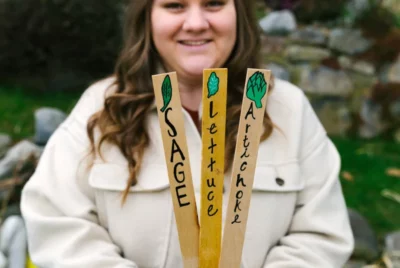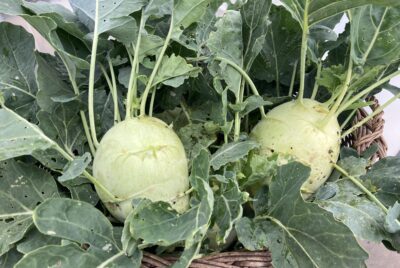RESEARCH
Effect of Horticultural Therapy on Mental Health: A Meta-Analysis of Randomized Controlled Trials
Summary
This study looked at whether horticultural therapy (HT), which involves working with plants, can help improve people’s mental health. The researchers gathered the results from multiple past studies called randomized controlled trials (RCTs). These types of studies are considered high-quality because they randomly assign people to either receive the therapy or not, allowing researchers to see if the therapy truly makes a difference. By combining the results of 18 of these studies, the researchers could get a better overall picture of how HT affects mental well-being.
The main finding of this research is that horticultural therapy has a positive and noticeable impact on mental health. The researchers found that, on average, people who participated in HT showed improvements in their mental health compared to those who did not. This suggests that using plant-based activities in a structured way could be a helpful tool for improving mental well-being in healthcare and community settings. The most common HT programs in the studies involved at least eight sessions of indoor and outdoor plant activities, as well as plant-related arts and crafts.
Link
Notes/Suggestions
D’Andrea, S. J., Batavia, M., & Sasson, N. (2007). Effect of Horticultural Therapy on Preventing the Decline of Mental Abilities of Patients with Alzheimer’s Type Dementia. Journal of Therapeutic Horticulture, 18, 8–17.
Kam, M. C. Y., & Siu, A. M. H. (2010). Evaluation of a horticultural activity
programme for persons with psychiatric illness. Hong Kong Journal of Occupational Therapy, 20(2), 80–86. https://doi.org/10.1016/S1569-18611170007-9
Tse, M. M. Y. (2010). Therapeutic effects of an indoor gardening programme for older people living in nursing homes.Journal of Clinical Nursing, 19(7–8), 949–958. https://doi.org/10.1111/j.1365-2702.2009.02803.x
Luk, K. Y., Lai, K. Y. C., Li, C. C., Cheung, W. H., Lam, S. M. R., Li, H. Y.,Ng, K. P., Shiu, W. H., So, C. Y., & Wan, S. F. (2011). The effect of horticultural activities on agitation in nursing home residents with dementia. International Journal of Geriatric Psychiatry, 26, 435–436. https://doi.org/10.1002/gps.2493
Detweiler, M. B., Lane, S., Spencer, L., Lutgens, B., Halling, M. H., Rudder, T. F. et al (2015). Horticultural therapy: a pilot study on modulating cortisol levels and indices of substance craving, posttraumatic stress disorder, depression, and quality of life in veterans. Alternative Therapies in Health and Medicine, 21, 36–41.
Zhu, S., Wan, H., Lu, Z., Wu, H., Zhang, Q., Qian, X., & Ye, C. (2016). Treatment effect of antipsychotics in combination with horticultural therapy on patients with schizophrenia: a randomized, doubleblind, placebo-controlled study. Shanghai Archives of Psychiatry, 28,
195–203. https://doi.org/10.11919/j.issn.1002-0829.216034
Vujcic, M., Tomicevic-Dubljevic, J., Grbic, M., Lecic-Tosevski, D., Vukovic, O., & Toskovic, O. (2017). Nature based solution for improving mental health and well-being in urban areas. Environmental Research, 158, 385–392. https://doi.org/10.1016/j.envres.2017.06.030
Cha, H. S., & Lee, S. (2018). The Effects of Horticulture Activity Caring Program on Stress, Depression, Blood Glucose, Lipids for Major Company White-Collar Workers.: A Randomized Controlled Trial. Journal of the Korea Academia-Industrial Cooperation Society, 19, 231–242. https://doi.org/10.5762/KAIS.2018.19.10.231
Kim, K. H., & Park, S. A. (2018). Horticultural therapy program for middle-aged women’s depression, anxiety, and self-identify. Complementary Therapies in Medicine, 39, 154–159. https://doi. org/10.1016/j.ctim.2018.06.008
Lee, M. J., Oh, W., Jang, J. S., & Lee, J. Y. (2018). A pilot study: Horticulture-related activities significantly reduce stress levels and salivary cortisol concentration of maladjusted elementary school children. Complementary Therapies in Medicine, 37, 172–177. https://doi.org/10.1016/j.ctim.2018.01.004
Mochizuki-Kawai, H., Kotani, I., Mochizuki, S., & Yamakawa, Y. (2018). Structured floral arrangement program benefits in patients with neurocognitive disorder. Frontiers in Psychology, 9, 1328. https://
doi.org/10.3389/fpsyg.2018.01328
Ng, K., Sia, A., Ng, M., Tan, C., Chan, H., Tan, C., Rawtaer, I., Feng, L.,Mahendran, R., Larbi, A., Kua, E., & Ho, R. (2018). Effects of horticultural therapy on Asian older adults: A randomized controlled trial. International Journal of Environmental Research and Public Health, 15, 1705. https://doi.org/10.3390/ijerph15081705
Sia, A., Ng, K. S. T., Ng, M. K., Chan, H. Y., Tan, C. H., Rawtaer, I. et al (2018). The effect of therapeutic horticulture on the psychological wellbeing of elderly in Singapore: A randomised controlled trial. Journal of
Therapeutic Horticulture, 28, 1–10.
Chu, H. Y., Chen, M. F., Tsai, C. C., Chan, H. S., & Wu, T. L. (2019). Efficacy of a horticultural activity program for reducing depression and loneliness in older residents of nursing homes in Taiwan. Geriatric Nursing, 40(4), 386–391. https://doi.org/10.1016/j.gerin urse.2018.12.012
Makizako, H., Tsutsumimoto, K., Doi, T. Makino, K., Nakakubo, S., LiuAmbrose, T., & Shimada, H. (2020). Exercise and horticultural programs for older adults with depressive symptoms and memory problems: A randomized controlled trial. Journal of Clinical Medicine,
9, 99. https://doi.org/10.3390/jcm9010099.
Kim, Y. H., Park, C. S., Bae, H. O., Lim, E. J., Kang, K. H., Lee, E. S., Jo, S.H., & Huh, M. R. (2020). Horticultural therapy programs enhancing quality of life and reducing depression and burden for caregivers of elderly with dementia. Journal of People Plants Environment, 23, 305–320.https://doi.org/10.11628/ksppe.2020.23.3.305
Siu, A. M. H., Kam, M., & Mok, I. (2020). Horticultural therapy program for people with mental illness: A mixed-method evaluation. reduces biomarkers of immunosenescence and inflammaging in
community-dwelling older adults: A feasibility pilot randomized controlled trial. The Journals of Gerontology: Series A, 76, 307–317. https://doi.org/10.1093/gerona/glaa271
Palsdottir, A. M., Stigmar, K., Norrving, B., Petersson, I. F., Åström, M., & Pessah-Rasmussen, H. (2020). The nature stroke study; Nastru: A randomized controlled trial of nature-based post-stroke fatigue rehabilitation. Journal of Rehabilitation Medicine, 52, 1–7. https://doi.
org/10.2340/16501977-2652
Yang, Y., Kwan, R. Y., Zhai, H. M., Xiong, Y., Zhao, T., Fang, K. L., & Zhang, H. Q. (2021). Effect of horticultural therapy on apathy in nursing home residents with dementia: a pilot randomized controlled trial. Aging & Mental Health, 1–9, https://doi.org/10.1080/13607
863.2021.1907304







